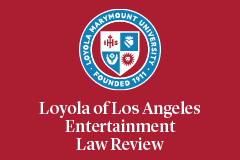Abstract
In July 2010, Private First Class Bradley Manning released thou-sands of classified documents with the help of WikiLeaks, a private web-site created to expose government and corporate corruption. During the months that followed, WikiLeaks disseminated several thousand addi-tional classified documents, including the whereabouts of U.S. troops and diplomatic cables. Public concern grew over the rapid release of the documents into Internet space. Lawmakers and government officials questioned whether the release of such information would compromise national security and foreign relations and violate the Espionage Act of 1917. While not all of the information distributed by WikiLeaks violated the law, the vast majority of the documents should not have been re-leased. If asked, the Supreme Court should hold that WikiLeaks did vio-late the Espionage Act, and should be held accountable. Furthermore, lawmakers should change the existing laws to conform to modern times by including sections regarding the dissemination of classified informa-tion over the Internet.
Recommended Citation
Melissa Hannah Opper,
WikiLeaks: Balancing First Amendment Rights with National Security,
31 Loy. L.A. Ent. L. Rev. 237
(2011).
Available at: https://digitalcommons.lmu.edu/elr/vol31/iss3/2


